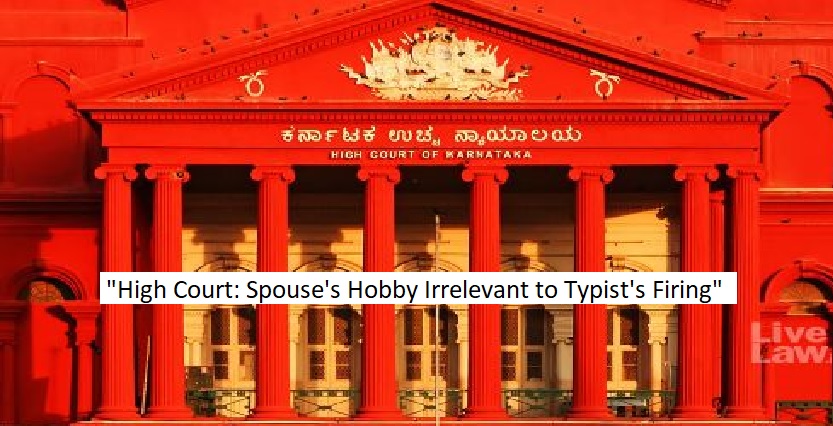


The Karnataka High Court has invalidated the termination order directed at a typist employed at the Additional Civil Judge and Judicial Magistrate First Class court in Davanagere. The termination stemmed from allegations that she provided inaccurate details about her husband's profession during the selection process.
A solitary judge on the bench, Justice N S Sanjay Gowda, allowed the petition, instructing the immediate reinstatement of the petitioner to the typist position. The court emphasized that the petitioner's husband's avocation held no relevance to her own merit, affirming that she secured the position based on her qualifications and not her spouse's occupation.
The typist had initially applied for the position by responding to a notification that required applicants to disclose their marital status. The petitioner, being married, duly submitted her application, eventually securing the typist role based on her merits. Moreover, her caste certificate, submitted as part of her application under a reserved category, was verified and confirmed as genuine by the Caste Verification Committee.
The controversy arose when, during a transfer request, the petitioner stated that her husband worked at the public prosecutor's office in Shivamogga. However, the Principal District and Sessions Judge contended that during the interview, the petitioner claimed her husband was a vegetable vendor, accusing her of providing false information. The judge ruled the petitioner guilty of misconduct, citing the alleged suppression of material information during the interview.
In response, the petitioner submitted a clarification, asserting that she accurately conveyed her husband's employment at the Public Prosecutor's office and clarified her parents' involvement in vegetable vending. The court found the lack of a definitive record of the interview and the conflicting statements insufficient to uphold the judge's decision, especially when the petitioner vehemently denied providing false information.
The court emphasized that the application process did not explicitly demand disclosure of the husband's avocation, questioning the relevance of such information to the typist position. It underscored that a spouse's occupation should neither qualify nor disqualify an applicant for a typist role.
The bench also rejected the trial court's reasoning, pointing out that the petitioner had already verified her personal information, including her husband's profession, with the Caste Verification Committee. This confirmation contradicted the trial court's assertion that the petitioner's husband was a vegetable vendor, strengthening the argument that the petitioner was wrongly terminated based on inaccurate information.
In conclusion, the Karnataka High Court's decision reaffirms that the avocation of an applicant's spouse should not impact their eligibility for a typist position. The court emphasized the petitioner's merit-based appointment and highlighted the absence of concrete evidence supporting the termination decision. The case serves as a precedent against making marital or familial details a determining factor in employment decisions, reinforcing the principle of meritocracy in the hiring process.
TAGS: Karnataka High Court Termination Order Typist Additional Civil Judge Judicial Magistrate First Class Davanagere Selection Process